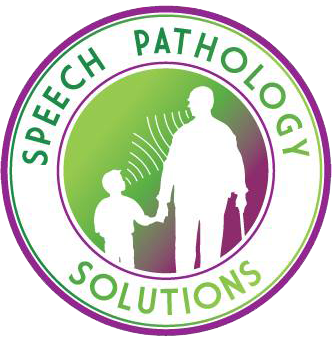April is National Autism Awareness Month which was designated by the Autism Society of America to not only promote awareness, but to help insure that everyone with autism has a fair shot at the highest possible quality of life.
Speech Language Pathology (SLP) is used to help patients with Autistic Spectrum Disorder (ASD) develop both behavioral and developmental social skills that they can carry for the rest of their lives. Learning to articulate, exchange ideas, and develop conversational skills may require different techniques. A Speech Language Pathologist’s role in the lives of patients with autism is to diagnosis, plan, and treat while also being an advocate for each patient. It is important that SLP’s also educate and research what treatment plan would work best for everyone involved in the patient’s life.
Speech Language Pathologists will work with patients by assessing the needs of each individual patient and setting specific therapy goals. Areas that SLPs focus on include;
- Receptive/ Expressive language therapy– SLPs will focus on specific areas that cover how a child with ASD comprehends and processes language as well as enhancing how a child puts thoughts into words and communicates.
- Enhancing Pragmatic language skills to help with social development. Learning how to effectively communicate and have social conversations can be difficult for children with ASD. Speech Pathologists can teach patients how to ask questions, respond to questions, start conversations, and maintain topic relevance. As well as on focus on non-verbal skills such as eye-contact, turn-taking and personal space.
- Using Multimodal Communication Systems – Spoken language as well as augmentative communication may be used. Utilizing a picture exchange system, studying sign language, using gestures, and/or using speech generating devices can help develop a wider range of communication for children with ASD.
- Sensory Integration– Children with ASD sometimes have physiological issues that prevent them from understanding how to handle certain scents, physical touch, or even eating foods. Sensory integration can help children with ASD learn to handle those overwhelming sensory issues.
- Feeding Therapy/ Oro-facial treatment– Learning to chew, swallow and actually enjoy eating is a developmental process that may be delayed in some ASD patients. A SLP can teach ASD patients how to eat without distress as well as eliminate premature swallow patterns such as a “reverse swallow” aka tongue thrust.
- Oral placement therapy/Articulation therapy– Often children with ASD have concurrent motor speech disorders such as Apraxia (difficulty coordinating the movements for speech) and/or Dysarthria (impaired movement of the muscles used for speech production, including the lips, tongue, vocal folds, and/or diaphragm). Many therapy techniques such a Oral Placement Therapy (OPT), PROMPT and Kaufman Protocol provide a hierarchy approach to facilitate articulation development.
We know that finding the right Speech Language Pathologist is as important as developing the right treatment plan for your child with Autism. You will want to know there is a connection between your therapist and your child that will enhance the treatment process. We aim to optimize the experience for both the parents and the child.
Contact us to set up a meeting with one of our Speech Language Pathologists to see if we would be a good fit for your child’s development. Our team will work with you to determine a comprehensive treatment plan that will be both educational and fun for your child while helping develop the necessary skills he needs to grow into a healthy, independent, and confident adult.

